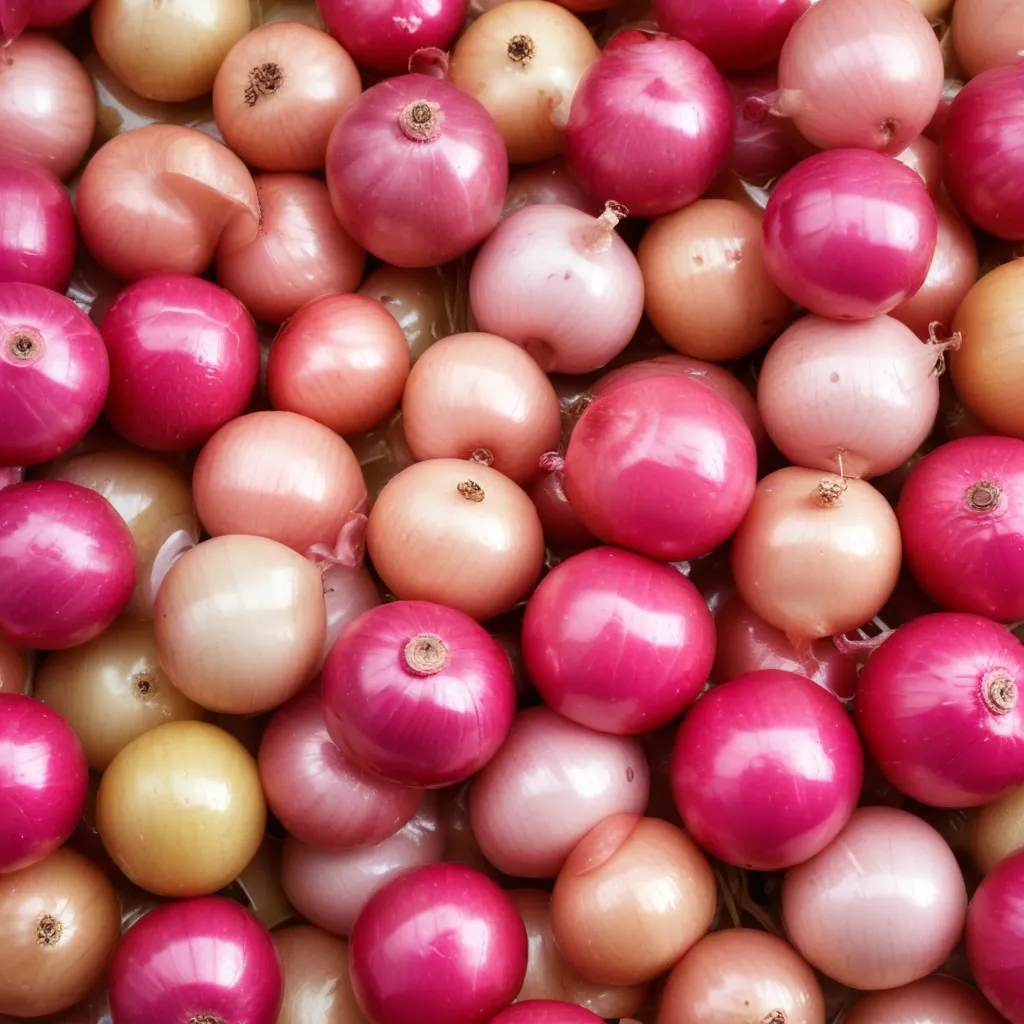
Substitutions – Can You Successfully Substitute Pickled Onions for…?
The world of culinary substitutions is a vast and fascinating realm, filled with creative solutions and unexpected flavor combinations. When it comes to the versatile pickled onion, Wine Garden Inn takes a deep dive into its versatility, exploring ways to successfully substitute this flavorful ingredient in a variety of dishes.
Ingredient Alternatives
Substituting for Pickled Onions
Pickled onions are a staple ingredient in many recipes, from sandwiches and burgers to salads and condiments. But what if you find yourself without this tangy, crunchy topping? Fear not, there are several alternatives that can step up to the plate.
One popular substitute is shallots. While not identical in flavor, shallots share a similar pungency and can provide a suitable replacement, especially in cooked dishes. Just be mindful that shallots may be a bit more subtle in their flavor profile. Another option is to use spring onions or scallions, which offer a fresher, more herbaceous note compared to pickled onions.
For recipes where you seek that signature acidic punch, lemon juice or vinegar-based condiments like capers or pickled peppers can also work well. The key is to experiment and find the right balance of flavors to achieve the desired result.
Pickling Process Variations
If you have the time and patience, you can always opt to make your own pickled onions. The process is surprisingly simple and allows for endless customization. Quick pickling, for example, involves soaking thinly sliced onions in a vinegar-based brine, often with the addition of sugar, salt, and spices.
For a more traditional approach, lacto-fermented pickled onions are a delicious alternative that can add probiotic benefits to your dish. This method relies on natural lactic acid bacteria to produce the tangy, crunchy texture.
Flavor Profiles of Pickled Onions
The distinct flavor of pickled onions is a result of the pickling process, which transforms the onion’s natural pungency into a more nuanced, slightly sweet-and-sour profile. The acidity of the vinegar, combined with the inherent sweetness of the onion, creates a perfect balance that can elevate a wide range of dishes.
Additionally, the pickling process can also impart other subtle flavors, depending on the spices and herbs used. For example, adding peppercorns, bay leaves, or coriander seeds can lend aromatic complexity to the final product.
Culinary Applications
Sandwich and Burger Toppings
Pickled onions are a beloved addition to sandwiches and burgers, adding a tangy crunch that perfectly complements the other ingredients. Whether you’re enjoying a classic Wine Garden Inn burger or experimenting with gourmet grilled cheese, pickled onions can provide a delightful contrast to rich, savory flavors.
Salad and Veggie Accompaniments
Beyond their sandwich and burger prowess, pickled onions are a versatile ingredient that can breathe new life into salads and vegetable dishes. Their vibrant color and sharp flavor profile can elevate a simple green salad or add a touch of sophistication to a roasted vegetable platter.
Condiment and Relish Substitutions
Pickled onions can also stand in for other common condiments and relishes, such as chutney, salsa, or tapenade. Their tangy, crunchy texture can provide a fresh and exciting twist to these traditional accompaniments, making them a must-have item in any well-stocked kitchen.
Health and Nutrition
Nutritional Benefits of Pickled Onions
Onions, the foundation of pickled onions, are rich in a variety of beneficial nutrients. They contain vitamins, antioxidants, and fiber, making them a healthful addition to any diet. The pickling process also introduces probiotics, which can support a healthy gut microbiome.
Dietary Restrictions and Pickled Onions
For those following specialized diets, pickled onions can be a versatile and accommodating ingredient. They are naturally gluten-free and vegan, making them a suitable choice for a wide range of dietary needs. Additionally, the vinegar-based brine can be adjusted to suit low-sodium or low-sugar requirements.
Preservative Properties of Pickling
The pickling process not only transforms the flavor of onions but also enhances their preservation and shelf life. The acidic environment created by the vinegar, combined with the natural antimicrobial properties of onions, helps to inhibit the growth of harmful bacteria, allowing pickled onions to remain fresh and flavorful for an extended period.
Cooking Techniques
Preparing Homemade Pickled Onions
While store-bought pickled onions can be a convenient option, the satisfaction of crafting your own homemade version is unparalleled. The process is relatively straightforward, involving thinly slicing onions, preparing a vinegar-based brine, and allowing the mixture to marinate for a designated time.
Quick Pickling Methods
For those seeking a faster turnaround, quick pickling techniques can provide a suitable alternative. These methods often forgo the traditional lengthy fermentation process, instead, relying on a brief soak in a hot brine to achieve the desired flavor and texture.
Incorporating Pickled Onions into Recipes
Incorporating pickled onions into your culinary repertoire opens up a world of possibilities. They can be used as a standalone topping, added to salads, sandwiches, and burgers, or even incorporated into sauces, dips, and marinades. The key is to experiment and find the perfect balance of flavors to complement the dish at hand.
Whether you’re a seasoned chef or a culinary enthusiast, the versatility of pickled onions is sure to inspire your creativity in the kitchen. So, the next time you find yourself without this versatile ingredient, remember that with a little ingenuity and a touch of culinary know-how, you can successfully substitute pickled onions for a wide range of delectable dishes.
